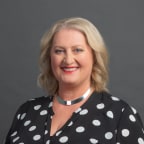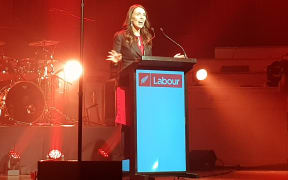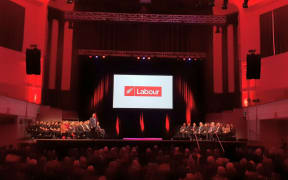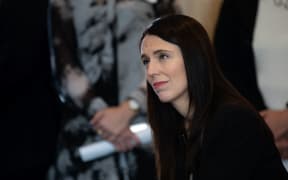Power Play - Considering this was a post-election victory get together, the Labour Party conference was a relatively locked down, low key affair.
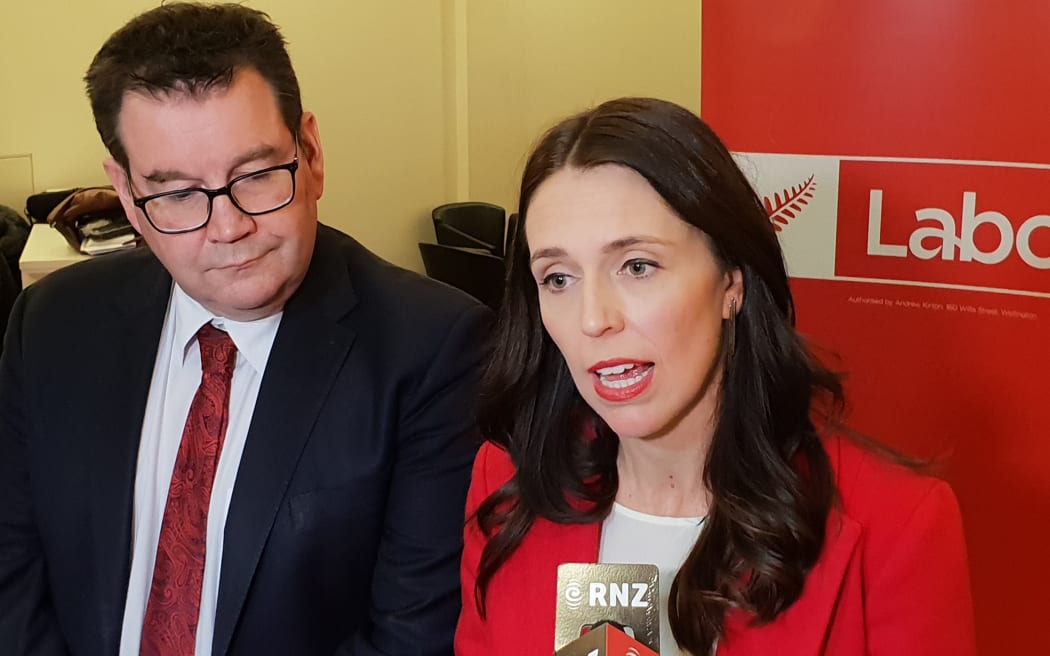
Grant Robertson and Jacinda Ardern at the Labour Party conference. Photo: RNZ / Jane Patterson
Drenched in Labour Party history, however, Dunedin was a fitting host.
It's a Labour stronghold, with National winning only one seat in the city in the last 50 years - Richard Walls in 1975, and the conference was held at the Town Hall, red-lit for the occasion.
Senior ministers including Grant Robertson used to call Dunedin home, and much was made of locally bred, frugal Presbyterian finance ministers.
But the conference was all about the Prime Minister Jacinda Ardern, and Labour coming to power after 10 years out in the cold.
There was no shortage of people wanting to come in and hear her main speech on Sunday but security concerns and the threat of 1080 protesters meant the seats on the sides of the upper gallery were left empty, and hundreds were turned away.
While her address was always going to be the main event, gone was the ra-ra and the usual leaders' walk down the aisle to applause from the membership.
Instead Ms Ardern walked onto the stage, thanked the band and launched into her speech, which she used to position herself among Labour prime ministerial predecessors. Kirk and Savage were name-checked but no mention of more recent leaders including former Prime Minister Helen Clark.
It was about reinforcing the "common touch" with much of her address being about letters she's received from voters, including school children.
While the delegates themselves were delighted Labour is back in government, the conference itself was bare bones, with only a handful of speeches open to media. All of the policy discussions were behind closed doors, unlike at National's conference a few months back where journalists were free to sit in on most of the sessions and report.
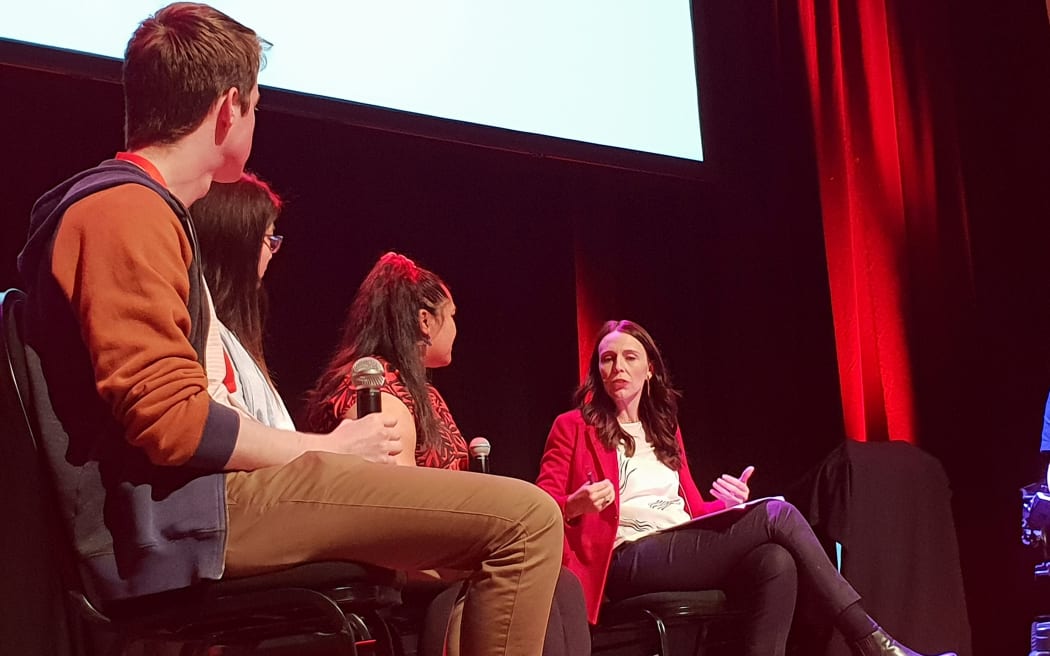
Jacinda Ardern chairing the youth panel which was part of the conference. Photo: RNZ / Jane Patterson
In place of a guest speaker was a panel of young people chaired by the prime minister but that was never going to be controversial, with all of the participants very much in step with Labour and its policy programme.
Maybe Labour is gun shy after the infamous 2012 conference where the keynote address of leader David Shearer was completely overshadowed by internal battles played out on the conference floor, ultimately leading to the demotion of David Cunliffe to the back bench.
Conferences have become increasingly stage-managed and sanitised so the parties can control the message but this year it lacked the robust debate, out in the open, that drives the future direction of the party.
There was a new announcement - 600 full-time learning coordinators to help children with specific learning needs - directly addressing a long held concern of the teaching sector, that more and more they have been left to deal with children with complex needs, to the detriment of general teaching duties.
While the education sector has traditionally been supportive of Labour, it's currently at loggerheads with the government over pay and conditions, with more teacher strikes on the way.
This new policy, and the promise of more to come may help to smooth some of those tensions.
However while the money is locked into next year's Budget, there are still plenty of details to be worked out, including what the second phase might look like.
There are already teacher shortages and the new coodinators will be registered teachers, with extra specialist training so the government is going to have to make sure there are enough people in the workforce to fill the new positions.
There will also be huge demand from schools for coordinators, and the task for ministers now is to figure out how to spread them out across the 2500 state and integrated primary and secondary schools.
A nod to the coalition also, with the minister responsible for the policy, Tracey Martin, from New Zealand First.
